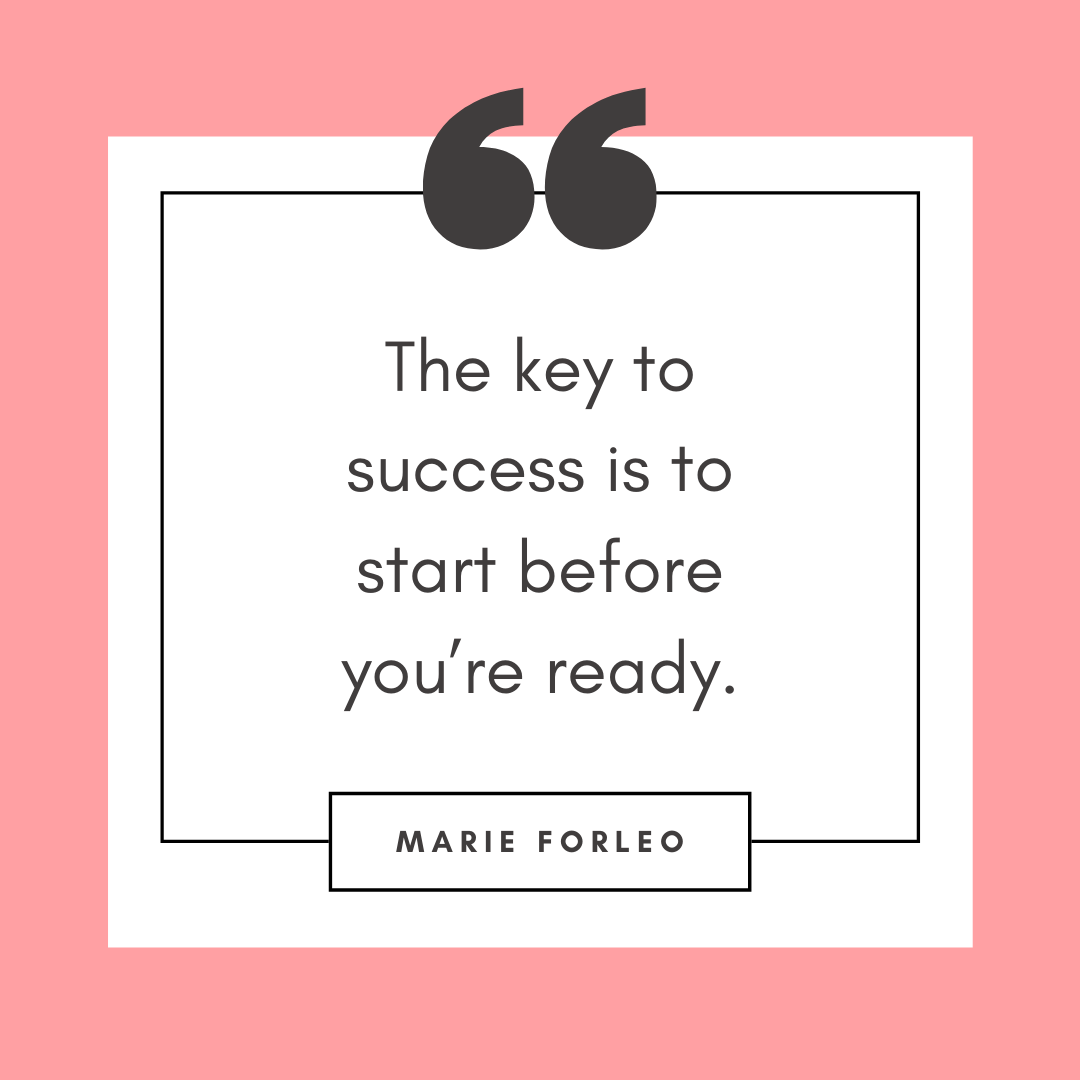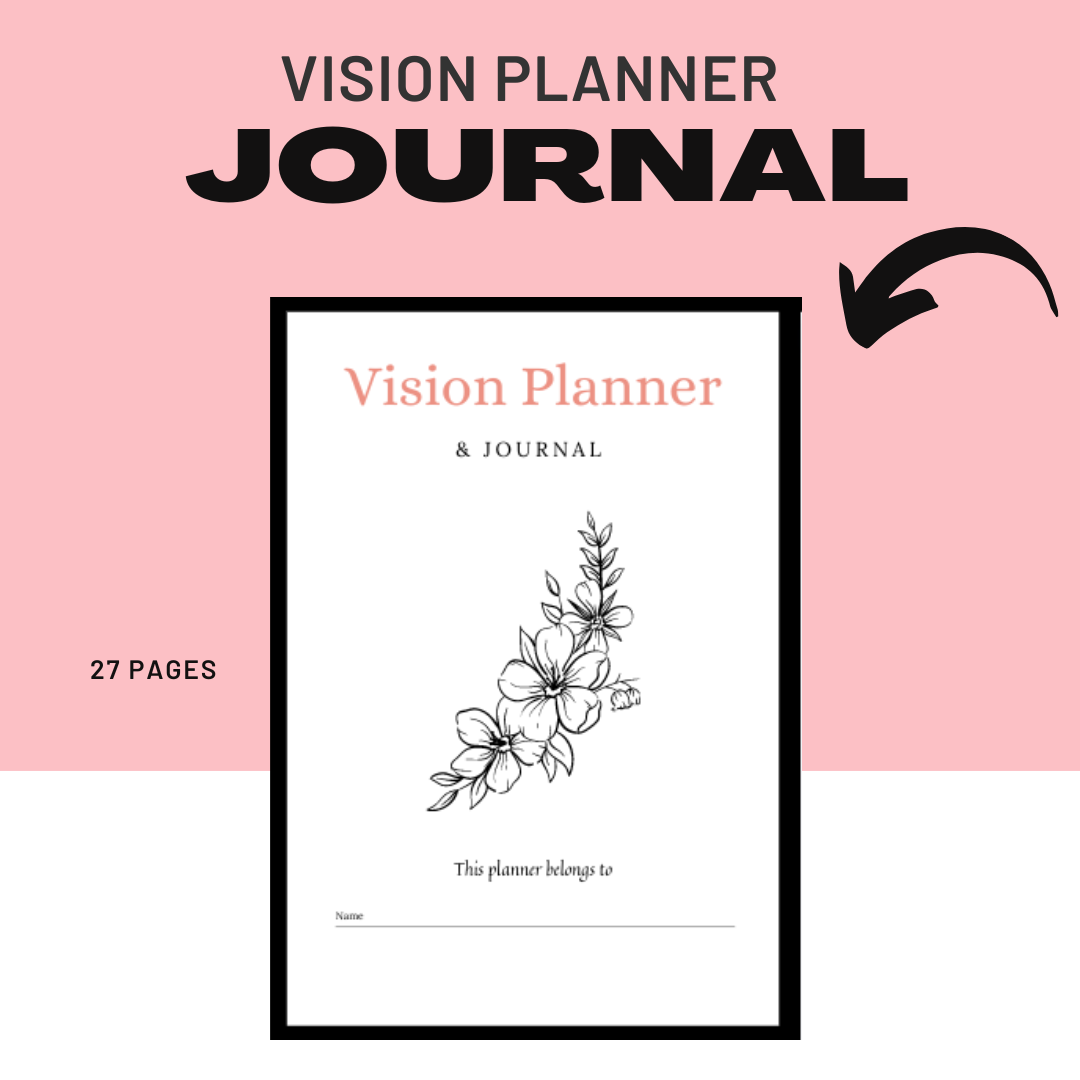10 Simple Reasons to Start Before You’re Ready
/Starting before you’re ready in business can be a scary thing. Most people like to do things when they’re certain about what they need to start, and how things are going to go throughout the process.
But most times, that isn’t the best way to do business. Most business owners want everything to be perfectly in place before they start a business venture, but we’re here to tell you that you just need to start.
Stop procrastinating and just start! You’ll learn what works and what doesn’t along the way, and the challenges you face will only make you stronger!
What it means to start before you’re ready
In business, you oftentimes start a new project that you may not be ready for yet. When you hear people say “you need to start before you’re ready”, you probably get overwhelmed with feelings of fear and stress which is totally normal. But what does it mean to start before you’re ready?
Starting before you’re ready means getting to work on a particular project or job before you know everything that’s going to happen along the way. In this situation, you won’t have a step-by-step plan that will layout each and every step you’ll be taking throughout this project. You just start the project going based on what you already know and have, and take on challenges as they come.
10 Simple Reasons to Start Before You’re Ready
1. Perfectionism is the enemy
Trying to make sure everything is perfect before starting a project in your business isn’t realistic. Nothing is ever going to be perfect, which means you’ll never start.
Once you realize that everything doesn’t need to be perfect, you’ll start to see success. Starting before you’re ready is the push most business owners need – the best way to learn is to just start and see where the road takes you.
2. You need to fail
Failure is a part of success that no matter how hard you try to avoid it, you will fail. In business terms, failure is great for you and your business.
You learn from your previous mistakes and you won’t make them again. Failure works hand-and-hand with starting before you’re ready because both ideas show you that everything won’t work the way you want or plan – and that’s okay!
3. Starting creates momentum
Planning can only get you so far – doing is what shows you your progress. If you sit around and wait till you have everything in place, you’re never going to get anywhere.
But if you just start, you’ll create momentum on your project and things will just fall into place before your eyes.
4. Not doing is taking a risk
Believe it or not, by not doing anything towards your goals you’re taking more of a risk than you are by not doing anything.
If you sit around and wait for everything to be perfect, you’re losing valuable time and money to your fears. If you start towards your goal, you’ll still be taking risks but the rewards you will see will be worth it in the end!
5. You’ll see your purpose
You created your business for some purpose that you felt you had. Whether that be to bring people joy, or something they can give to a loved one – you felt you had a purpose. Your gut was right – you do have a purpose and people need to see it.
By starting before you’re ready, you’ll prove to yourself that you have a purpose in not only your life but in other’s lives.
6. You’re building experience
Everyone needs experience in the business world, whether you’re just starting or you’ve been in the working world for quite some time now. Building experience is one the most important things you can do as a business person.
One of the best and quickest ways to build experience is to just start. IF you’re not sure how to do something, just start the task and you will figure all the tiny details out as you go – next time, you’ll be a pro.
7. You’ll see your potential
Most business people doubt themselves when they first start. Social media has shown us how easily your business can blow up, but if that doesn’t happen to you, you’re most likely going to doubt yourself and your business.
Give it time and once people start noticing you, buying from you, and sharing about you, you’ll start to see what you’re capable of and that you have so much potential that no one has seen yet.
8. You don’t need fancy marketing
Most people starting a new business think they need fancy marketing to attract their customers – that’s not true! There are so many ways to grow your business organically that won’t cost you much.
If you don’t have a big budget to market your business, don’t worry!
When it comes to marketing your business, all you need to do is show your potential customers that you will add value to their life, and you have to show them your consistent – that’s it! If you do those simple things, the customers will come to you!
9. You feel joy in your business, but still have fears
This is a common mixture of emotions to have. When you think about your business, and you’re working on it, you feel joy – but you also experience a lot of fear. This is totally normal.
This mixture of emotions can feel like an anxiety attack, like you’re flying, etc. Take these feelings and turn them into actions by starting before you’re ready!
10. You won’t know until you try
You’ve probably had hundreds of people say this to you throughout your life, and it’s because it’s true. You never know what will happen to you and your business until you just try.
If you start doing something different in your business and it doesn’t work, great now you know! But if you want to do something you aren’t sure will work or not, just try it and see!
You could think an idea is going to fail, but that same idea is what could make you thousands of dollars. You never know until you try!
Final Thoughts
The 10 items listed above are all reasons why you should start before you’re ready. Being a business owner is all about taking risks and trying out new things. If you wait for everything to be perfect, you’ll never make any progress.
The fun thing about being a business owner is the thrill of success and even failure! Business is all about trial and error, and you just need to start before you’re ready!






















